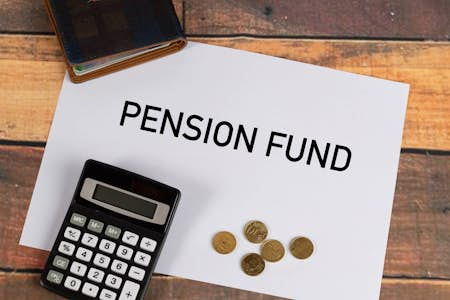Thousands of women across the UK could find themselves in line for a massive windfall after the Department for Work and Pensions underpaid them for years. Many women who have been on £1-a-week state pensions could find they are owed tens of thousands of pounds after being underpaid, with some owed money stretching back many years.
When the budget took place in March, reports showed that around 200,000 women might be entitled to a payout after being underpaid. It is estimated that the amount owed collectively could be up to £3 billion, with some women entitled to a payout of tens of thousands. This is due to automatic pension increases not being triggered, resulting in underpayments continuing for many years.
Maximise your retirement fund with our panel of pension providers. Click on your chosen provider to get started!
Review by civil servants underway
A team of over 100 civil servants is currently conducting a review into the underpayments initially revealed in March. The DWP will contact all women who have been affected. However, it has been revealed the process could take up to five years to complete because there are so many women affected, and underpayments date back to 1992.
The problem with the £1-a-week state pensions was highlighted by the former Pensions Minister, Steve Webb. Speaking to the BBC, he said there was a little-known rule meaning thousands of women on these pensions may not be flagged up during the current review by the DWP. According to Webb, those receiving a fraction of graduated retirement benefits (GRB), which ran until 1975 under the old pension system, could qualify for a payout.
Mr Webb said, "It is incredible that there are thousands of women getting such tiny pensions, but even more incredible that many could potentially be entitled to tens of thousands in back payments. It is as if they are sitting on unclaimed winning lottery tickets. It is very important that women on these very small pensions make contact with the DWP as soon as possible to see if they could be entitled to a windfall."
He added that these claimants were only receiving an average of £1.24 per week, which is adequate to qualify for a married woman’s pension. Mr Webb also confirmed that claims could be backdated to the husband’s 65th birthday, which could mean a huge windfall for some women.
Payment not automatic
So many women have missed out on this pension increase over the years because it is not an automatic one. The individual must claim it, but because it is not a widely known rule, many women had no idea they were entitled to more money and did not make a claim.
One woman, Carole Davies, 76, discovered earlier this year that she is entitled to a payout of more than £60,000 from the DWP after contacting them. Having retired in 2003, she was unaware she could claim a married woman's pension and was receiving less than £1 per week due to her work and national insurance contribution history.
She contacted the DWP many times, convinced she was receiving the wrong amount. However, she was always told she was not entitled to more money. However, she is now one of the thousands of women in line for a considerable payout from the DWP.







